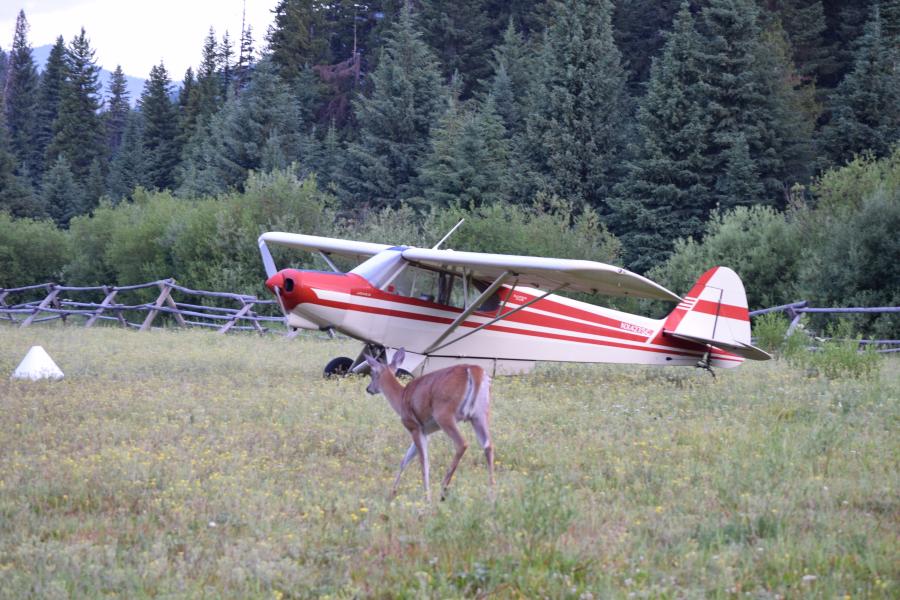SCIENTIFIC NOISE STUDY: AIRCRAFT DON’T STRESS WILDLIFE
In its mission to preserve and create airstrips for recreational access, the RAF seeks to provide credible information during public lands management planning. In 2014, the RAF was awarded an AOPA Foundation grant toward the cost of a two-year study to determine if there are noise effects around backcountry airstrips, and if so, how these effects compare with other uses. Montana Department of Transportation provided substantial funds, matched by the RAF.

The study, released March 15, concludes that there is no significant increase in stress levels among wildlife due to recreational aviation activity.
Overseen by RAF’s Environmental Science Advisory Committee chair Dr. Ric Hauer – Ph.D. of the University of Montana’s Institute on Ecosystems – U of M post-graduate wildlife biologist Devin Landry selected a suite of six Montana and Idaho backcountry airstrips; and six control sites devoid of aircraft noise. Volunteer RAF pilots flew the scientists and their equipment in to the airstrips to collect feces samples, which indicate stress levels through hormone excretions. After laboratory analysis, Landry and Hauer published an 18-page document subjected to peer-review. Titled “Effects of Backcountry Aviation on Deer Stress Physiology.” It summarizes:
“Based on the results of our study, we concluded that there is no significant increase in stress levels among deer due to recreational aviation activity (e.g., takeoffs, landings, prop noise, camping, human presence) at backcountry airstrips compared to that expressed by deer as a result of similar, but non-aviation recreational activity (e.g., camping, motorized access to campground or trailhead, human presence) at campground and recreation access sites.”
Dr. Hauer said, “We believe that when ethically used, recreational aircraft is one of the lowest-impact means of backcountry access.” The study reinforces this position and goes a long way toward ensuring that backcountry airstrips remain an integral form of access.
Submitted on April 21, 2016.
